
By: Shandra Martinez
From hardware to candy, five retailers share the stories of their centennial businesses from the beginning until now, along with the strategies behind their success.
The number of retail companies that make it to the 100-year mark is minuscule. What’s the secret to longevity? It’s a family that is committed over generations, or someone willing to come in and keep the business going. Michigan Retailer reached out to five centennial businesses to learn how they began, how they serve customers now, and their advice to other retailers.
 Dickinson Hardware
Dickinson Hardware
Then: Charles A. Dickinson and his uncle, Leonard S. Dickinson, started the Fennville hardware store around 1880. Charles’ son, Donald Henry Dickinson, took it over at age 22 when his father died in 1925. He eventually outgrew the location, moved the store across Main Street in the 1950s, and created a state-of-the-art hardware business. His son, Charles Leonard Dickinson, joined him in about 1952.
Now: The store carries a complete line of sporting goods, plumbing and electrical, paint, lawn and garden, automotive, tools, pet supplies, pet and livestock feed, water heaters, door, window and cabinetry hardware, and housewares. It also ships UPS and is an Amazon delivery site, and offers Just Ask Rental equipment and party supplies. Bob and Kym Dickinson Zumbrink, the son-in-law and daughter of Charles Leonard and Sally, bought the business in 1981. Later they purchased the True Value hardware store across the street to 11 E Main St., creating Dickinson True Value. The couple’s children and grandchildren (fifth and sixth generations) now help in the store.
Advice: “Give great, friendly service, and be willing to change with the times. Get to know your customers personally by name,” said Kym Dickinson Zumbrink. “One of the biggest honors we’ve had is meeting the people of our wide-reaching and diverse communities and serving them to the best of our ability. It is very rewarding, and we feel blessed to be a part of this centennial family hardware in this wonderful community.”
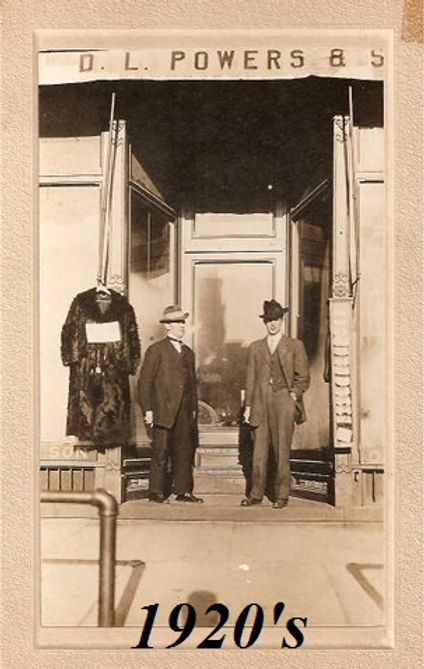 Powers Clothing
Powers Clothing
Then: David L. Powers arrived in Jonesville in 1890 to start a men’s and boys’ clothing store. His son, Ralph M. Powers, became a partner at age 21, and the business was renamed D.L. Powers and Son. In the early 1950s, Ralph’s son Monty Powers brought the store into a new era, adding luxuries such as air conditioning and carpeting.
Now: Today, the business is Powers Clothing, 227 E. Chicago St. It is operated by the fourth, fifth, and sixth generations of David L. Powers’ family, including Dave Pope, Jim Pope, Marcy Pope Boone and Sara Sauber. The store has sold Carhartt clothing for 130 years, longer than any other dealer in the country. It offers custom tailoring for suits, dress shirts, pants and even Carhartt clothing, all done in the store.
Advice: “Two components you must earn daily are satisfied customers and cooperative vendors,” David Pope said. “We have always created relationships outside of the business by being active and contributing our time, talent, and money to local causes. When our customers arrive, we treat them like family and friends. We treat vendors as partners.”
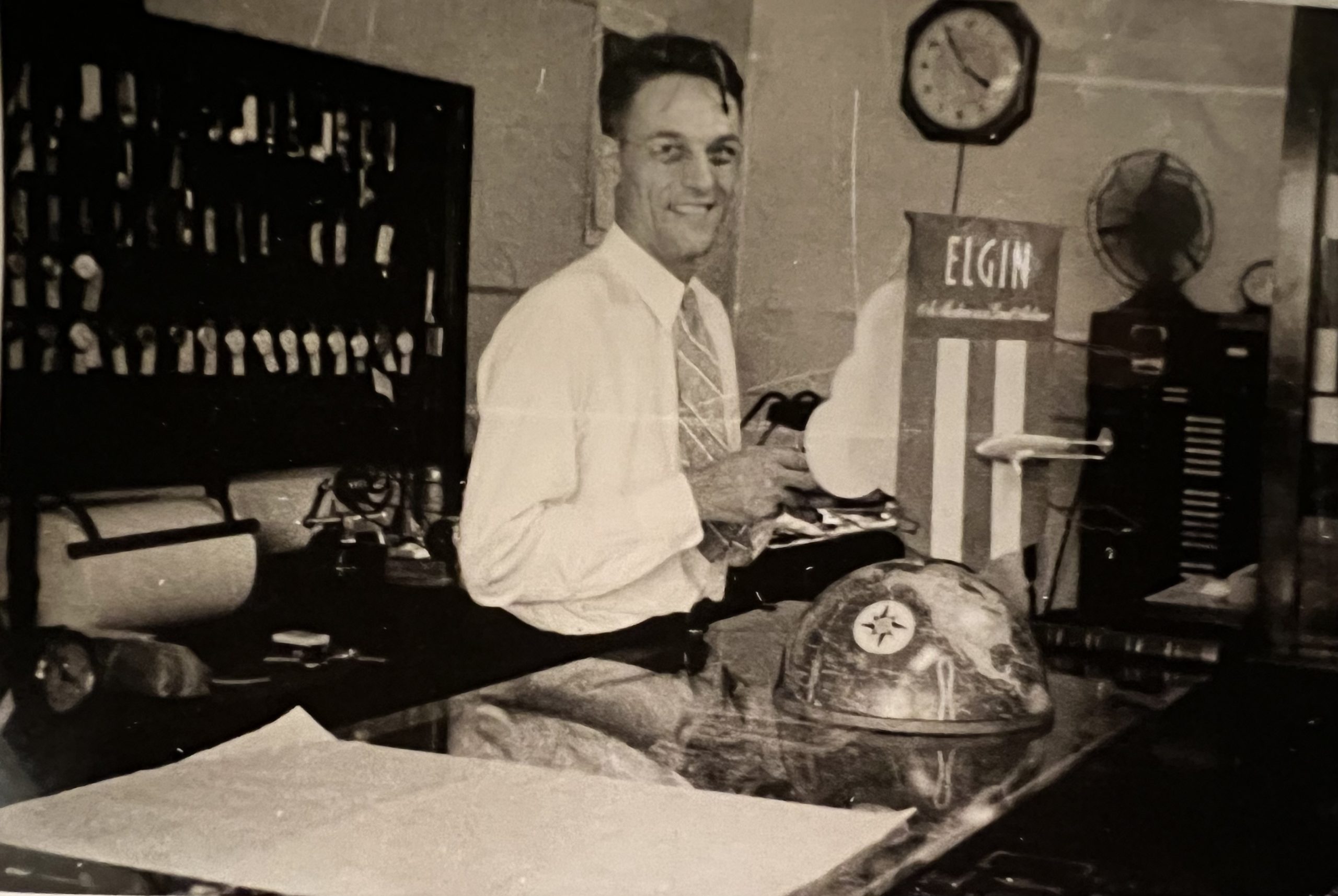
Joseph Owens, 1932
Linn & Owen Jewelers
Then: Linn & Owen can trace its history to Jesse Hanes, who opened Hanes Jewelry at 121 E. Washtenaw St. in 1917. In 1927, Jesse sold it to his son-in-law Henry Linn and his partner, Harry Scutter. In 1933, Joseph Owens became a partner. Linn & Owen Jewelers stayed in its original neighborhood for 65 years until the current owner, Stewart Powell, moved the store around the corner to 223 S. Washington Square in 2007.
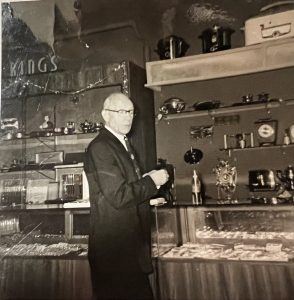
Henry Linn, 1950s
Now: Powell, who bought the business in 1993, began by sweeping floors and learning engraving during high school and college. He then apprenticed in jewelry repair, design, and manufacturing, followed by horology (watchmaking), gemology, and appraising. He’s been with the business for nearly a half-century.
Advice: “If not for my ‘dinosaur’ attitude, we would not be going strong at this point,” Powell said. “Many would name me a fool for not creating an online store, but the bench work consumes 100% of our time, and the way I see it, we are still one little place, instead of one of many thousands on the internet. I’m sticking with what I know.”
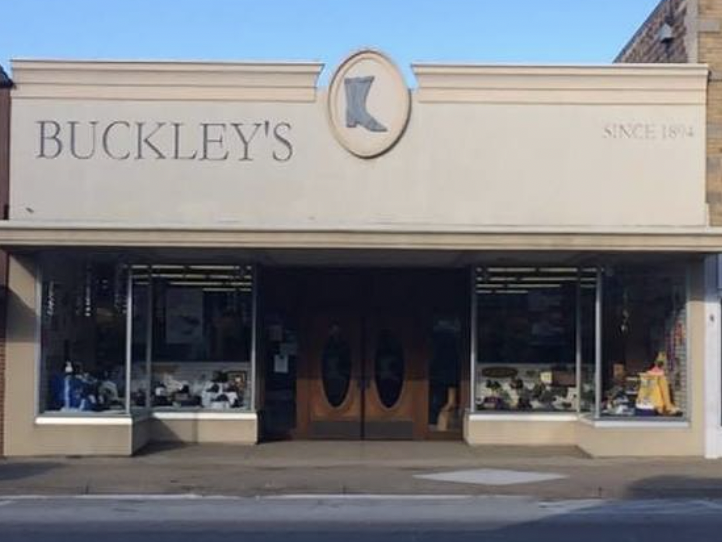 Buckley’s Shoes
Buckley’s Shoes
Then: Buckley Shoes was founded in Bad Axe in 1894 by Spencer Blakely and has since provided comfortable, stylish, and affordable shoes to the Thumb. The business remained in the family for four generations until Spencer’s great-grandson, Robert Buckley, sold it to Greg Marciniak in 2018. He’s worked in the shoe business for decades, including 20 years managing Allen Shoes in Bay City.
Now: The store, at 159 E Huron Ave., has navigated away from children’s shoes as demand for high quality has waned, and it now carries higher quality men’s and women’s shoes. Buckley’s Shoes is the only independent shoe store in Huron County and the surrounding counties of Tuscola, Sanilac, and Bay. Marciniak estimates 40% of business comes within 50 miles.
Advice: “We’ve learned to adapt,” Marciniak said. “You can’t just be stuck in what you used to do 10 years ago. We have a POS system that tracks purchases. I send out postcards to the top-tier customers every January, thanking them for their business and giving them a $35 reduction on any $100 purchase. Last year I sent out 500 cards and got 78 back, which I was thrilled with because the average response is 3%.”
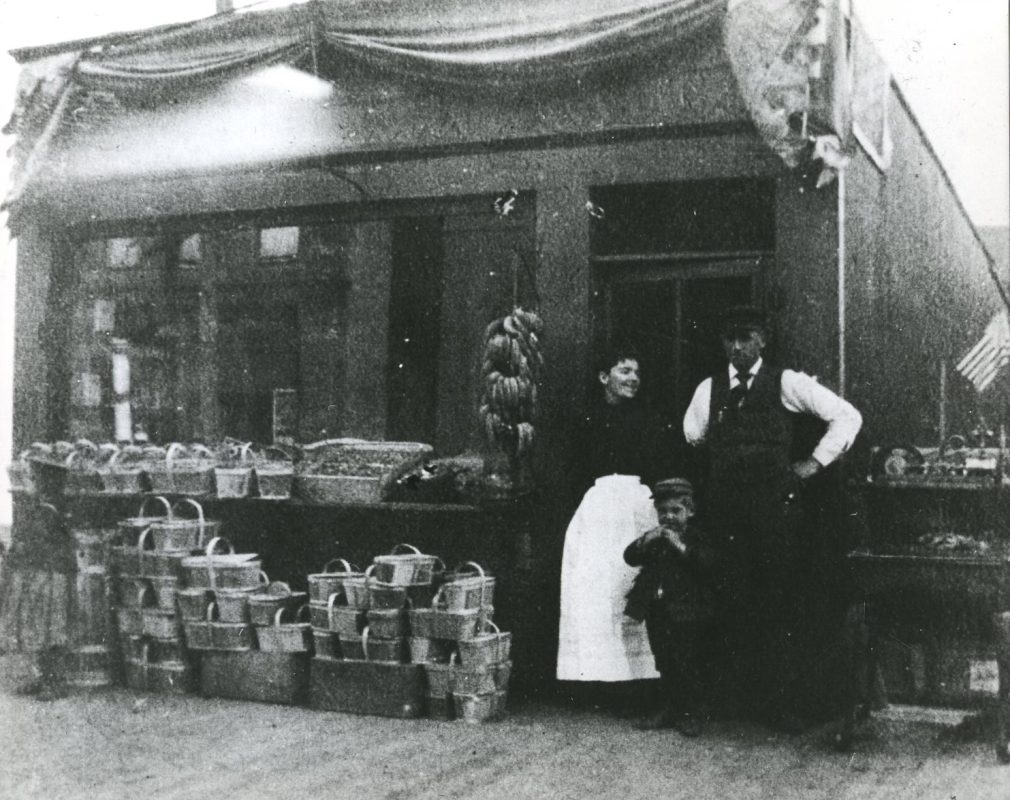 Donckers
Donckers
Then: Donckers, at 137 W. Washington St. in Marquette, had belonged to the same candy-making family for 112 years when Tom Vear asked about buying the building. The deal struck in 2007 by Fred Donckers – the grandson of the founder – resulted in Vear keeping the family business going. Vear and his wife, Jen Ray, had moved to the Upper Peninsula community in 2001 from Chicago to live in a quiet community. Ray graduated from high school in Marquette.

Now: The couple rehabbed the building, adding a candy-making operation and a restaurant, Delft Bistro. They also purchased a shoe store next door, opened a store, Evergreen, on the main level, and plan to turn the upstairs into an event space. They now have room to expand into wholesale sales. The three businesses have been good for the local economy. They now employ 90 people.
Advice: “It’s all about passion and vision. Our business is about the employees and the customers. We think a lot about how we do business and the culture we want to create,” Ray said.
[Nominate a store, or see a complete list of Michigan Centennial Retailers]

